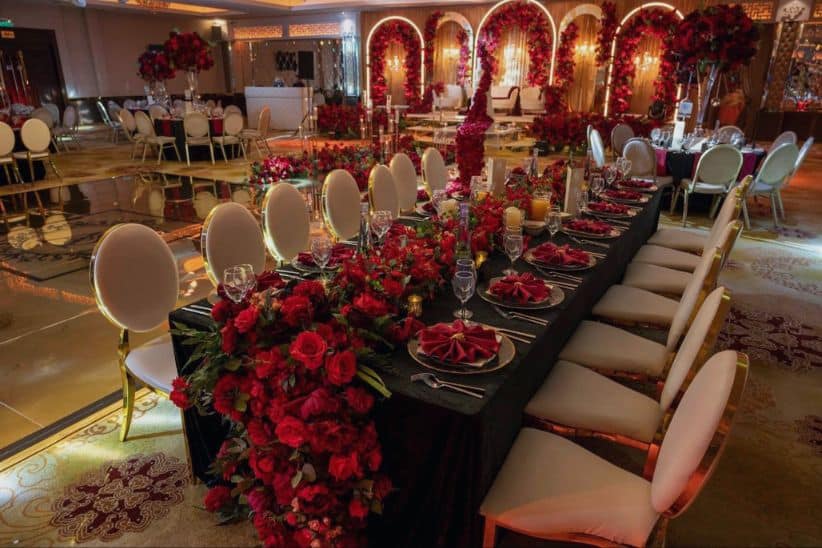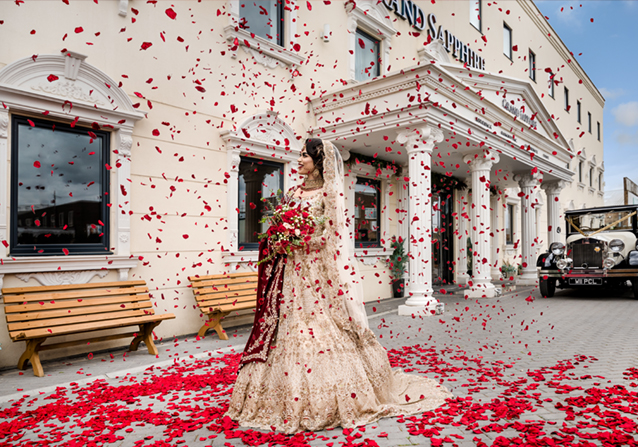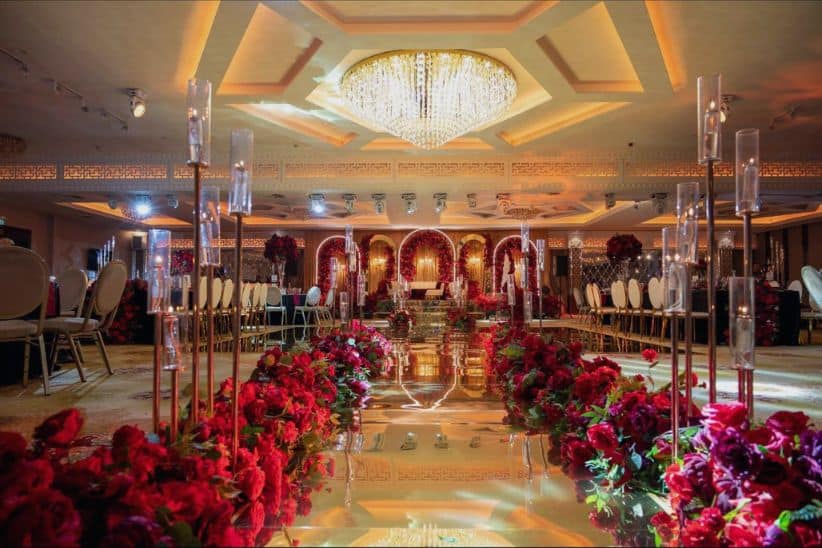How to Plan a Wedding: A Simple Step-by-Step Guide
 There’s something truly special about planning a wedding. It’s not just about organising a big event, it’s about creating a day that celebrates the love between two people. For many, it’s one of the most exciting milestones in life. But let’s be real, planning a wedding can also feel like a lot. From picking the perfect venue to choosing who makes the guest list, there’s so much to think about. That’s why having a clear plan makes all the difference.
There’s something truly special about planning a wedding. It’s not just about organising a big event, it’s about creating a day that celebrates the love between two people. For many, it’s one of the most exciting milestones in life. But let’s be real, planning a wedding can also feel like a lot. From picking the perfect venue to choosing who makes the guest list, there’s so much to think about. That’s why having a clear plan makes all the difference.
Whether you’re planning something grand or keeping it small and simple, this guide will help you through each step of how to plan a wedding so you can focus on what really matters: making happy memories.
Start with Your Vision and Budget
Before you start booking anything, sit down with your partner and talk about what kind of wedding you both imagine. Do you want it to be formal or relaxed? Indoors or outdoors? Big or small?
Once you’re on the same page, the next step is setting a budget. It doesn’t have to be exact down to the last rupee or dollar, but it should give you a clear idea of what you can afford. Make a rough list of the major expenses—like the venue, food, clothing, and photographer. Try to leave a little extra aside for any unexpected costs that pop up along the way.
Set a Timeline
Choosing a wedding date is the first thing that locks everything in. Once you’ve done that, work backward and set deadlines for the rest of your to-dos. For example, when you need to book your vendors, send invitations, or go dress shopping. Most couples plan their wedding over 12 to 18 months, but if you have less time, it’s still doable with some good organisation.
Make Your Guest List
The number of guests will affect your budget and venue options, so it’s important to have an idea early on. Start with your close family and best friends, then add extended family and others you’d like to include. Be honest with yourself—if your budget is tight, it’s okay to keep things small.
Pick the Right Venue
Your venue sets the tone for the entire day, so choose one that fits your style and guest count. Visit a few options if you can, ask about availability, packages, and any rules they might have. Try to book it early—venues can fill up fast, especially during peak wedding season.
Book Your Main Vendors
A few key vendors will shape your big day, so try to book these early:
- Catering – Whether it’s a buffet or sit-down dinner, find a caterer that fits your taste and budget. Tastings can help you finalise the menu.
- Photography & Videography – Look at their previous work to make sure it matches the style you want. Good professionals get booked months in advance.
- Music – Decide if you want a DJ or a live band. Pick someone who can match your energy and keep your guests entertained.
- Flowers & Decor – Meet with a florist to discuss ideas that go with your colour scheme and theme.

Wedding Outfits
Start your outfit search early so you have time for fittings or any changes. Brides should explore different styles and fabrics to see what feels right. Grooms should pick a suit or sherwani that matches the setting and tone. Also plan what the bridesmaids, groomsmen, and any flower girls or ring bearers will wear.
Plan Ceremony and Reception Details
Work with your officiant to plan the ceremony, things like vows, readings, or traditions. For the reception, you’ll need to plan:
- Seating – Create a chart so guests are seated comfortably and enjoy the company.
- Decor – Choose decorations that bring your space to life without going overboard.
- Food and drinks – Finalise your menu, keeping dietary needs in mind.
- Reception schedule – Make a plan for speeches, first dances, cake cutting, and more.
Invitations
Once your guest list and venue are set, it’s time to send the invitations. Include all key details-time, place, dress code, and how to RSVP. Try to send them about 6 to 8 weeks before the big day so guests can plan ahead.
Plan Travel and Stay
If guests are coming from out of town, help them out with hotel suggestions or even reserve a few rooms at a nearby place. Don’t forget your own transport—whether it’s a classic car, carriage, or just a ride to the venue.
Take Care of Legal Formalities
Every country and city has its own rules for getting legally married. Make sure you know what documents you need and when to apply for a marriage licence. If it’s a destination wedding, research the rules there too.
Be Ready for Surprises
Even with the best planning, things might not go perfectly—and that’s okay. It’s smart to have a plan B for things like weather changes, or a vendor dropping out last minute. Assign someone you trust, like a wedding planner or friend, to manage the small emergencies so you don’t have to worry.
Don’t Forget to Enjoy It
Yes, planning a wedding can be a lot, but try not to get lost in the pressure. This is a once-in-a-lifetime moment. Laugh, take breaks, ask for help, and remember what the day is truly about, you and your partner starting a new life together.

Conclusion
Weddings are not about being perfect, they’re about being meaningful. As you figure out how to plan a wedding, don’t get caught up in comparing your day to others or stressing over the tiniest details. What matters most is that your wedding reflects who you are as a couple. Whether it’s a big celebration or a quiet gathering, if it feels right to you, it’s already perfect.
Take it one step at a time, breathe through the bumps, and let your love guide the process. Because at the end of the day, that’s what it’s all about: love, memories, and a new beginning together.



